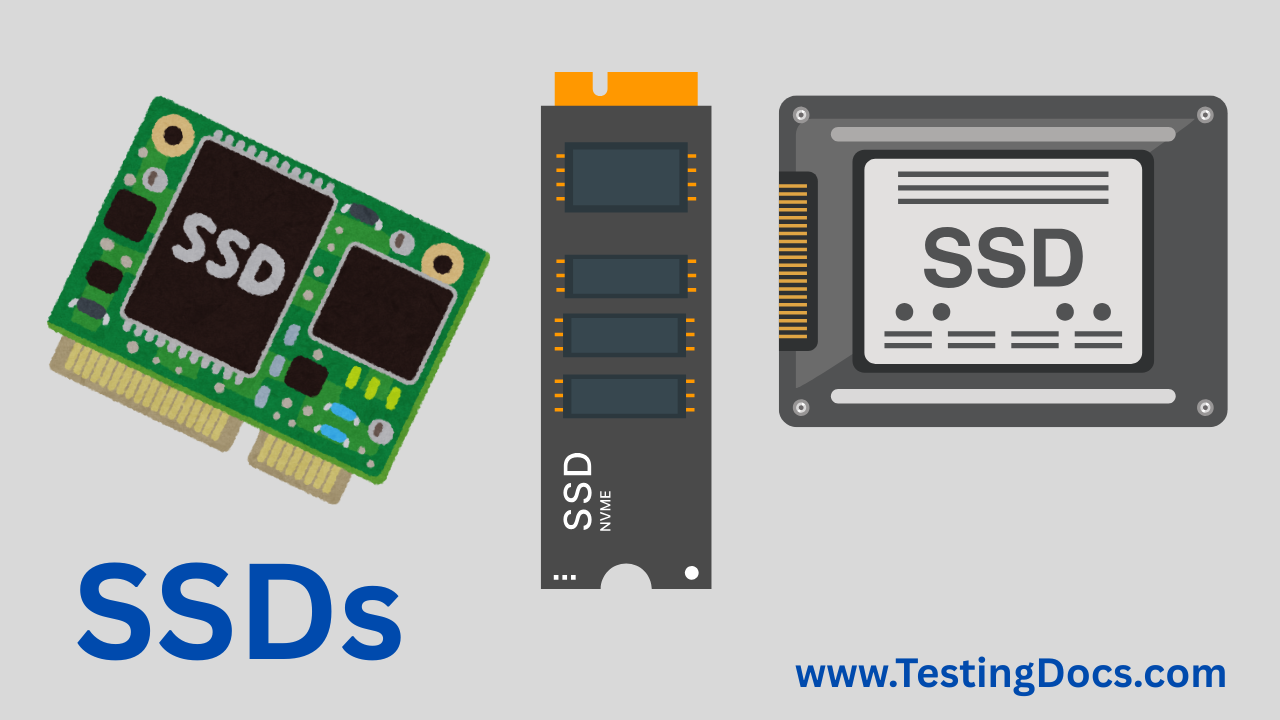Solid State Drives
Solid State Drives (SSD)
In today’s digital world, fast and reliable data storage is essential. Whether you are using a laptop, desktop, or gaming console, you might have heard the term “SSD” or Solid State Drive. If you’re wondering what it means and how it affects your computer’s performance, this guide is for you. Let’s explore SSDs in a simple and easy-to-understand manner.
What is a Solid State Drive?
A Solid State Drive (SSD) is a type of data storage device used in computers. Unlike traditional hard drives (HDDs) that use spinning disks and mechanical parts to read/write data, SSDs store data using flash memory chips. This makes them much faster, quieter, and more durable. SSDs are commonly used to store the operating system, applications, and personal files like photos, videos, and documents.
- Speed: SSDs offer much faster data access and boot times compared to HDDs.
- Durability: With no moving parts, SSDs are more resistant to physical shock and wear.
- Energy Efficient: SSDs consume less power, making them ideal for laptops.
- Silent Operation: Since there are no spinning parts, SSDs operate silently.
- Cost: SSDs are generally more expensive per GB than HDDs, but prices are gradually decreasing.

Types of SSD
There are different types of SSDs based on their interface and form factor. Each type has its own benefits and use cases.
SATA SSD
SATA (Serial ATA) SSDs are the most common and affordable type. They use the same interface as traditional hard drives, making them compatible with most older systems. Though slower than newer types, they are still much faster than HDDs.
M.2 SSD
M.2 SSDs are compact and connect directly to the motherboard. They are ideal for modern laptops and desktops due to their small size. M.2 can support both SATA and NVMe protocols, depending on the drive and system.
NVMe SSD
NVMe (Non-Volatile Memory Express) SSDs offer ultra-fast performance by using the PCIe interface. They are much faster than SATA SSDs and are perfect for tasks that require high-speed data processing like gaming, video editing, and programming.
PCIe SSD
PCIe SSDs connect through PCI Express slots and provide extremely high-speed data transfer rates. These are mainly used in high-performance computers, gaming rigs, and professional workstations.
Difference Between SSD and HDD
| SSD (Solid State Drive) | HDD (Hard Disk Drive) | |
|---|---|---|
| Speed | Very Fast | Slower |
| Moving Parts | No | Yes |
| Durability | More Durable | Less Durable |
| Noise | Silent | Produces Noise |
| Power Consumption | Low | High |
| Cost | More Expensive | Cheaper |
| Storage Capacity | Usually Lower | Usually Higher |


